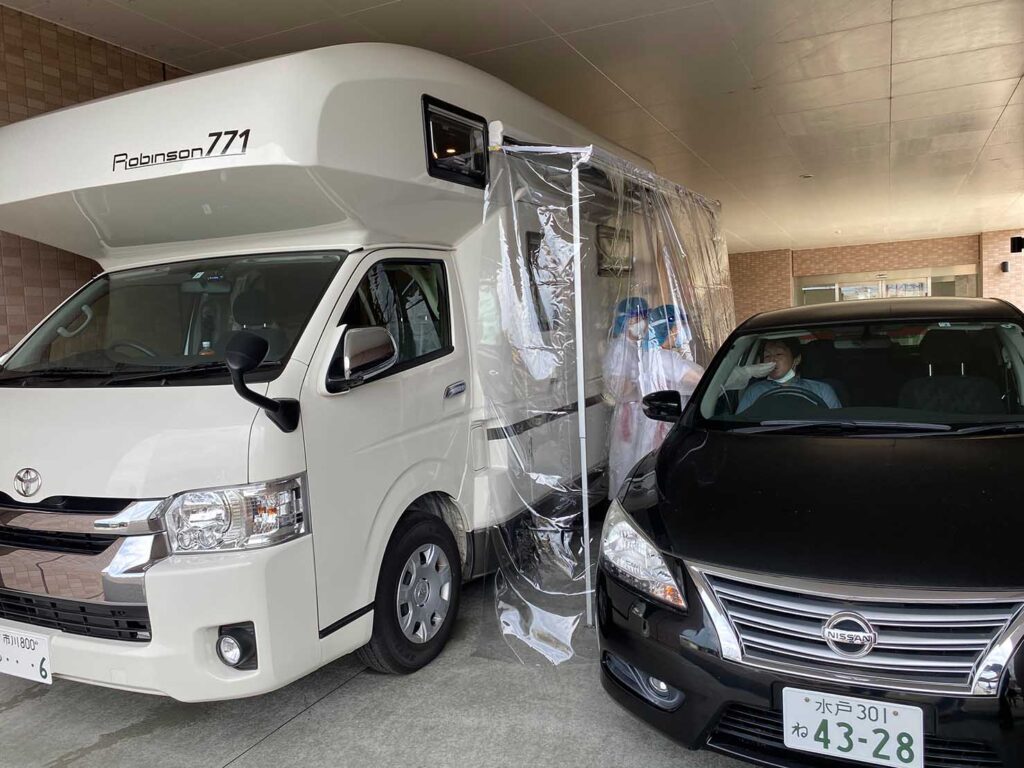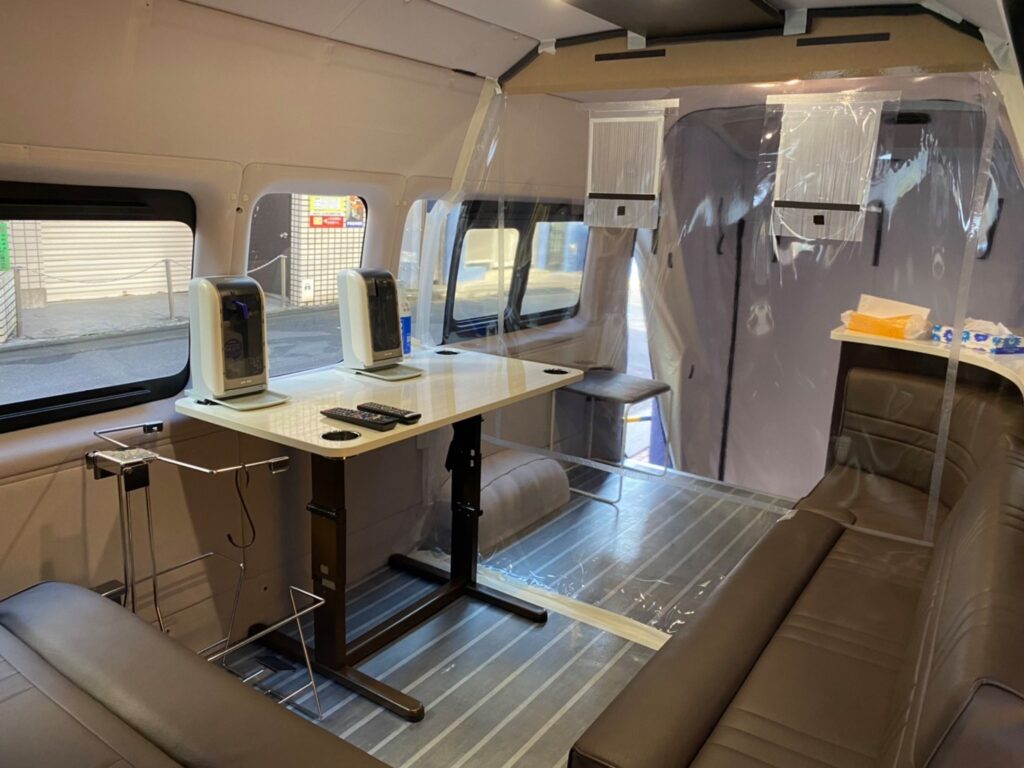
JAPAN C.R.C. Co.,Ltd. is considered a very good idea as a medical MaaS project, such as renting a camping car to a local government or hospital to allow PCR tests or vaccinations, or using it as a space for long-term isolation of severely infected patients.

However, in the absence of doctors and nurses, I think it would be more efficient to check the changes in the biosignals of severely infected patients isolated in each Camping Car, namely, electrocardiogram, blood pressure, oxygen saturation, pulse, and body temperature remotely at the central control center in the hospital building.
And among the countless people lined up in front of the Camping Car, I think that if a person can check for changes in their bio-signals before they get a PCR test or get vaccinated, they can quickly move them to a separate space and take safer action.
To JAPAN C.R.C. Co.,Ltd., which shows the disadvantages of this medical MaaS business, the US Asia Journal introduced AI solutions of Infoming and GB Soft, Korean small and medium-sized enterprises. Accordingly, JAPAN C.R.C. Co.,Ltd. recognizes the technical value of Infoming and GB Soft and is discussing in-house about conducting business by incorporating it into their medical MaaS.
For reference, Infoming is a company that developed a system that analyzes bio-signals of electrocardiogram, blood pressure, blood sugar, oxygen saturation, pulse, and body temperature through a PC screen or smartphone through a camera lens such as CCTV.
In other words, JAPAN C.R.C. Co.,Ltd. felt that medical staff would be able to remotely check medical device-level bio-signals every second by simply filling the wrist of a severely infected patient with a Smart Watch. Also, they felt that CCTV cameras installed in the Camping Car would immediately identify only those who detected abnormalities in bio-signals among the countless people in a row with 95% or more accuracy within 1 to 10 seconds.
Despite planning such an ingenious medical MaaS business, it is necessary to pay attention to the attitude of Japanese companies to compensate for their shortcomings. In addition, I look forward to expanding business exchanges between Japanese and Korean companies.
MIKE CHOI
ASIA JOURNAL

